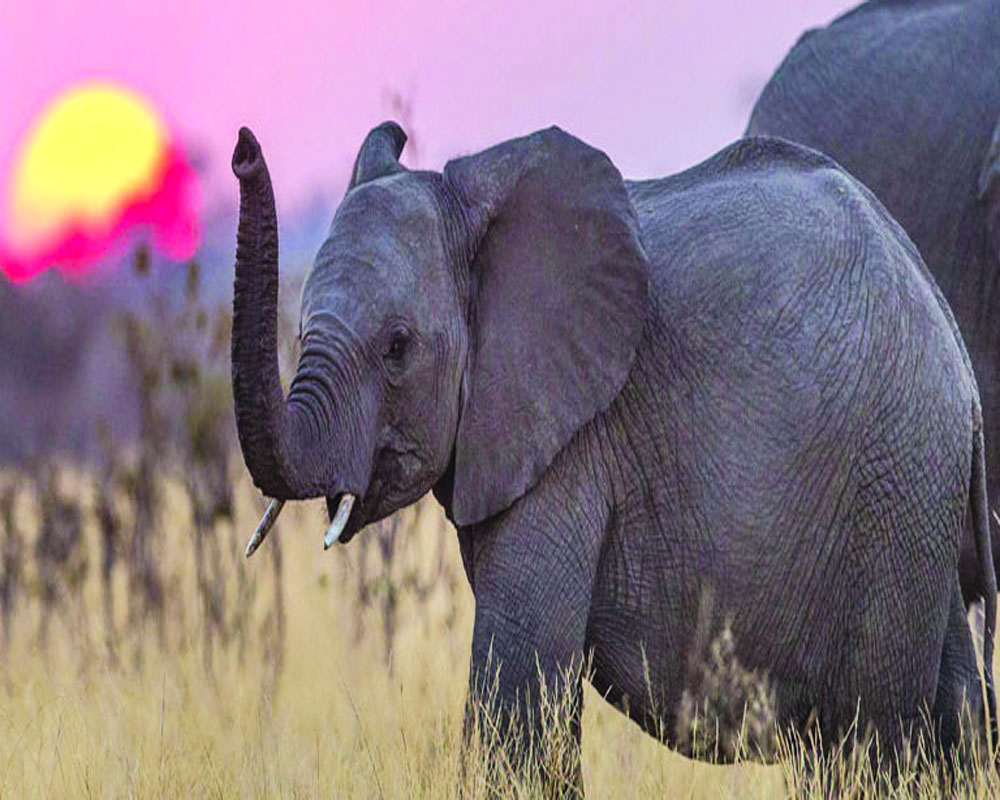Global warming and conflicts with humans will wipe out 41.8% of elephant habitat in India by the century end, pushing elephants into higher elevations along the Himalaya
It is not just human-animal conflicts, rampant urbanisation and poaching, the Asian elephants in India and neighbouring Nepal are facing a bigger challenge — climate change, which is set to cast a shadow on their survival — according to a recent study.
It is predicted that around 41.8 per cent of the 2,56,518 square km of habitat available at present will be wiped out by the end of this century due to combined effects of climate change — which alters the water cycle and plant growth — and human pressure, prompting jumbos to seek refuge at higher elevations along valleys with greater water availability in Himalayan mountains.
Conservation and management of elephant populations under climate change should include design of movement corridors to enable dispersal of the elephant and other associated species to more conducive environments, suggested the study published in the recent edition of global journal Diversity and Distributions.
Using an ensemble of species distribution models (SDMs), the conservationists predicted changes in distribution of the Asian elephant in South Asia due to increasing climatic variability under warming climate and human pressures.
In response, the jumbos would shift their range upwards along gradients of water availability and seasonal droughts, said the researchers from Spain, Germany, India, Portugal, Denmark, Nepal, Italy and Myanmar.
As elephants lives on plants and fruits in their natural habitat, rise in temperature will have impact on growth of the plants and trees. Also, elephants need lots of water, both to drink and to bathe in. When that isn’t in place they fall ill. Global warming can result in water supplies drying up.
“We compiled a large database of more than four thousand elephant occurrences and a large geo-database of environmental predictor variables covering India and Nepal for this study,†explained Surendra P Goyal from Dehradun-based Wildlife Institute of India, which was part of the study.
Relying on climate and land use data projections for 2050 and 2070, different scenarios were calculated and “all scenarios strongly indicate that the interaction between climate change and land use will compound existing threats to the elephant.â€
“The negative effect is especially severe in the human-dominated landscapes in eastern and southern India,†said study co-authors Priya Davidar and Jean-Philippe Puyravaud from Sigur Nature Trust.
The study stressed that while a few regions in the north and northeast of the subcontinent may provide more suitable habitats in the future, overall a heavy loss is probable in all scenarios.
In India, there are around 27,312 elephants in the wild while in Nepal their number is estimated to be between 100 and 125. The study also said the projections could be effectively used to identify critical habitat areas that require immediate conservation attempts and adjust current habitat protection strategies to minimise biodiversity loss due to habitat degradation.
The analysis suggested that the fragmented core areas that are located along the foothills, forests and floodplains of the Himalaya could be “connected by a mixture of poor and high-quality habitat that should form specific targets for management.â€


























